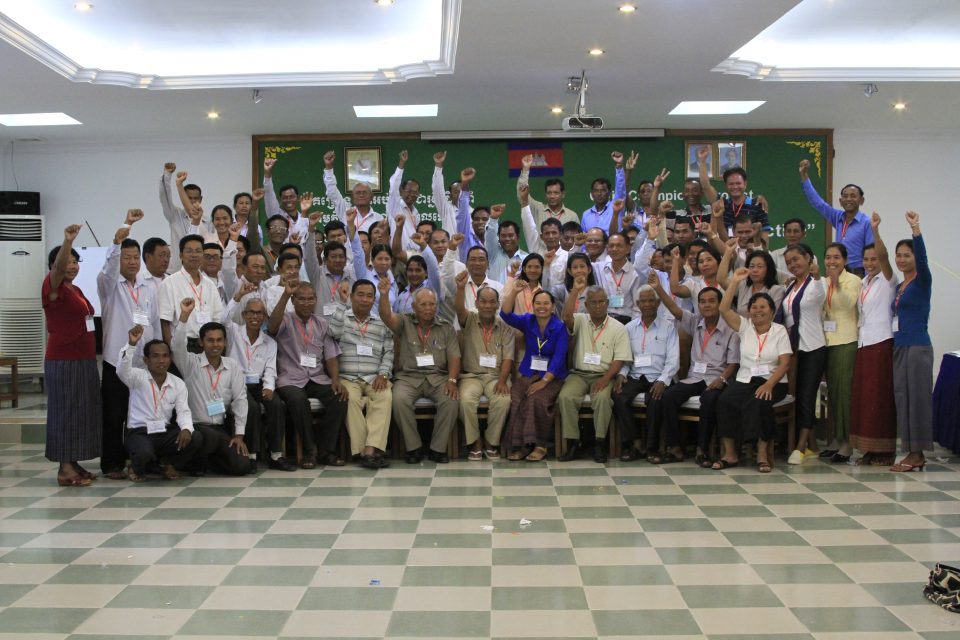Civic Champions Up & Running
Overview: WaterSHED’s Civic Champions project aims to ignite the leadership potential of local government officials in rural Cambodia. Inspired by experience with rural government leaders whose extraordinary efforts led to greatly increased sanitation coverage in their communities, the Civic Champions project seeks to encourage leaders in similar positions to recognize and act upon their potential as powerful agents of change in their communities.
Civic Champions Up and Running
WaterSHED’s Civic Champions project aims to ignite the leadership potential of local government officials in rural Cambodia. Inspired by experience with rural government leaders whose extraordinary efforts led to greatly increased sanitation coverage in their communities, the Civic Champions project seeks to encourage leaders in similar positions to recognize and act upon their potential as powerful agents of change in their communities.
Whilst this project, hopes to encourage the emergence of a new cohort of confident and inspired civic leaders marked by a deep change in their leadership behaviors, attitudes and actions, the focus on changes in behavior as a benchmark for success presents a new set of challenges in terms of monitoring and evaluation. How will this project capture and share how it has influenced the attitudes and actions of these civic leaders?
Traditionally, monitoring frameworks have focused on quantitative evidence as indicators of the success of a project. While the numbers are useful and indeed necessary to understand the impact of a project, commonly used frameworks leave little room to understand the “human element”: how a project is influencing not only the external conditions but also the minds and hearts of those it seeks to reach. More conventional monitoring methods seem to be lacking in terms of their ability to systematically track behavior change. The IDRC’s Outcome Mapping framework offers a set of tools designed to capture the very story of how change happens throughout the course of a project, lending itself perfectly to a project such as Civic Champions. WaterSHED is embracing this opportunity to use Outcome Mapping to plan, monitor and evaluate the Civic Champions project, enriching the range of project management tools at its disposal.
Much of the groundwork for this exciting yearlong initiative was laid in June and July of 2013, including a project design workshop encompassing the first phase of the Outcome Mapping process. Called the Intentional Design phase, WaterSHED team members came together over two days to lay out crucial elements of the project. This included charting the project’s Vision and Mission, identifying key partners, developing the indicators of progress that will be used in project monitoring, to preparing strategies the project will use to achieve its desired outcomes. The workshop afforded the team the opportunity to thoughtfully and intentionally engage with the project, ensuring that all members are on the same page and ready to contribute to its implementation. Team members represented a variety of perspectives from within WaterSHED, which enhanced the breadth of viewpoints encompassed in the Intentional Design framework.
With a solid foundation for Civic Champions established, the next steps for project management is to establish the monitoring and evaluation framework. A defining characteristic of Outcome Mapping is its focus on iterative learning; as a project is implemented, the team is encouraged to revisit the original plan at regular intervals and revise it based on what they have learned through each stage of the project’s implementation.
By experimenting with new strategies aimed at leadership development in Cambodia, and using Outcome Mapping for planning, monitoring and evaluation, Civic Champions offers valuable opportunities for innovation which could influence WaterSHED’s approach to future project planning.
By Lindsay Voigt, August 2013

